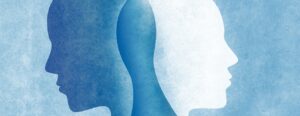Do you know someone who is bipolar? Chances are, you do. Bipolar disorder is one of the most common mental health conditions in the world. In this comprehensive guide, we will discuss all aspects of type 2 bipolar disorder. We will cover symptoms, treatment options, and ways to manage the condition. If you are living with bipolar disorder, or if you love someone who is, this guide is for you.
There are many misconceptions about bipolar disorder, and as a result, many people don’t understand what it is or how to deal with it. In this article, we will explore type 2 bipolar disorder in detail, and discuss the signs and symptoms that you need to watch out for. We will also provide resources for you so that you can learn more about the condition and find support if needed.
Contents
What is Type 2 Bipolar?

Type 2 bipolar disorder is a serious mental illness that affects about 1 in every 5 people. It’s more common in women than men, and it often starts during late adolescence or early adulthood.
People with type 2 bipolar disorder experience episodes of extreme happiness and joy, as well as bouts of intense depression. During an episode of bipolar disorder, a person may miss many days of work or school, and they may have trouble concentrating or completing tasks.
type 2 bipolar disorder is treatable with medications and therapy. If you or someone you know is struggling with type 2 bipolar disorder, please contact your doctor or mental health professionals for help. This type of condition can be incredibly challenging, but with the right treatments, it can be managed.
Symptoms of Type 2 Bipolar

Type bipolar disorder is a mental disorder that affects how a person experiences moods. It is characterized by cycling between two different moods, or states of mind.
Signs and symptoms of type bipolar disorder can vary from person to person, but they typically include:
Depression: A person with type bipolar disorder may experience intense sadness and feelings of hopelessness. They may also have difficulty sleeping, eating, and concentrating. Sometimes people with type bipolar disorder experience hallucinations or delusions, which can be very disruptive.
Anxiety: People with type bipolar disorder may have persistent and intense anxiety that can interfere with their daily life. They may also have difficulty controlling their emotions and tend to become agitated easily.
Mania: People with type bipolar disorder may experience an intense and euphoric mood called mania. During mania, they may have trouble sleeping, eat excessively, and be overly confident. They may also make risky decisions without thinking about the consequences. There may be many changes in behavior during this phase of the disorder.
Normal mood changes are part of life, but if they occur on an irregular basis (cyclical), they may be signs or symptoms of type bipolar disorder. If you think you might have this condition, speak to your doctor for advice.
Fatigue: An important sign and symptom of type bipolar disorder is fatigue. People with this condition may often feel tired, weak, and drained. This can make it difficult to concentrate, work, or take care of everyday tasks.
Relationship difficulties: People with type bipolar disorder may experience difficulty maintaining relationships. They may be irritable and hypersensitive to rejection. They may also have difficulty trusting others and be difficult to get along with.
Treatment for Type 2 Bipolar
There is no one-size-fits-all approach to treating bipolar disorder, as the best treatments vary depending on the person’s specific symptoms and history. However, some general principles can help guide treatment decisions.
Treatment for type 2 bipolar disorder typically involves a combination of medication and therapy. The goal of medication is to stabilize the patient’s mood and prevent future episodes of mania or depression. The goal of therapy is to help the individual learn how to manage their symptoms and live a healthy lifestyle.
Medications
The most common type of medication used to treat bipolar disorder is an antidepressant. Antidepressants work by interfering with the biochemical pathway that is responsible for the symptoms of depression. Some antidepressants, such as selective serotonin reuptake inhibitors (SSRIs), are also effective in treating bipolar disorder.
Other types of medications used to treat bipolar disorder include antipsychotics and anticonvulsants. Antipsychotics work by blocking dopamine receptors in the brain, which can lead to a reduction in the symptoms of schizophrenia. Anticonvulsants are medications that are used to manage seizures. They can also be used to treat bipolar disorder in some cases.
Several other medications are sometimes prescribed for the treatment of bipolar disorder, including mood stabilizers, antipsychotic augmentation, and lithium. However, there is not always enough evidence to support the use of these medications in specific cases. Therefore, it is typically recommended that patients consult with their doctor before starting any new medication regimen.
Therapy
Therapy can help individuals learn how to cope with their moods and symptoms. It can also help them develop strategies for managing stress and preventing relapse.
Several different types of therapy are used to treat bipolar disorder. Some common types of therapy include cognitive behavioral therapy (CBT), interpersonal psychotherapy (IPT), and family therapy. CBT is a type of therapy that focuses on changing the individual’s thoughts and behaviors related to their symptoms. IPT is a type of therapy that focuses on the relationships between the individual and their friends or family members. Family therapy is often used in conjunction with other types of treatments, such as CBT or IPT, to help families manage their conflicts and improve communication patterns.
Self-Care
Self-treatment is an important part of the treatment process for bipolar disorder. Self-care includes activities such as exercise, eating a healthy diet, and managing stress. It is important to note that self-care is not a replacement for professional therapy or medication. There are several resources available to help individuals learn more about self-care and how to best manage their symptoms.
It is important to keep in mind that bipolar disorder is a chronic condition, and it may take several months or years for the individual to see significant improvement in their symptoms. Therefore, it is important to continue following the treatment plan that has been prescribed by your doctor.
Prevention of Type 2 Bipolar

Prevention is the key to controlling type 2 bipolar disorder. Here are some tips to help you stay healthy and prevent type 2 bipolar from developing:
1. Be tobacco free: Smoking can increase your risk of developing type 2 bipolar by up to 50%. If you smoke, quit immediately.
2. Eat a balanced diet: A balanced diet will include plenty of fruits, vegetables, and grains. Include lean protein sources as well, such as fish, poultry, legumes, and low-fat dairy products.
3. Get enough exercise: Regular exercise can help to reduce your risk of developing type 2 bipolar by up to 70%. Exercise prevents obesity and its associated health problems, including type 2 diabetes, cardiovascular disease, and some types of cancer.
4. Avoid stress: Too much stress can lead to an increased risk of developing type 2 bipolar. Try to relax and de-stress every day by doing things that make you happy or spending time with close friends and family.
5. Get help: If you experience signs of type 2 bipolar, such as increased irritability, mood swings, and suicidal thoughts, seek professional help. A mental health professional can provide you with the support you need to manage your condition.
Conclusion
Type 2 bipolar disorder is a serious mental illness that can cause significant problems in a person’s life. If you think you may have type II bipolar disorder, it is important to seek professional help. With proper treatment, people with type II bipolar disorder can lead happy and productive lives. If you or someone you know has type II bipolar disorder, there are many resources available to help.
If you think you may have type II bipolar disorder, it is important to seek professional help. With proper treatment, people with type II bipolar disorder can lead happy and productive lives.
Hope this article was of help to you! If you are suffering from mental health disorders, you may seek help from Therapy Mantra. We have a team of highly trained and experienced therapists who can provide you with the tools and skills necessary for overcoming mental health disorders. Contact us today to schedule an online therapy or download our free Android or iOS app for more information.


